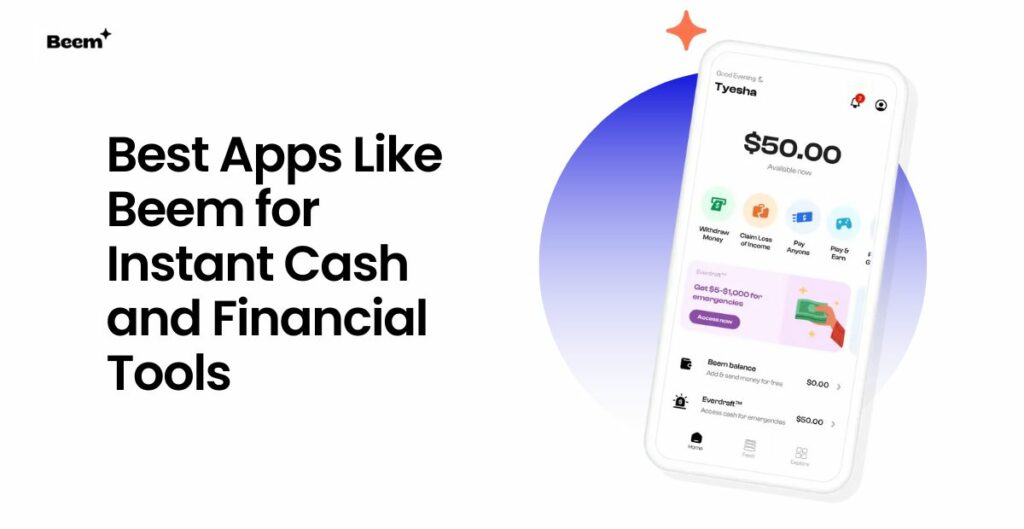Table of Contents
In a world where subscriptions multiply quietly, energy bills creep up, and everyday expenses seem to rise faster than your paycheck, figuring out how to reduce monthly bills without sacrificing comfort feels almost impossible. Yet, the secret to saving money isn’t always about radical change or deprivation—it’s about being clever, strategic, and curious about where your money goes.
If you’re tired of the same old advice—“just stop buying coffee!”—this guide is for you. We’ll show you how to reduce monthly bills without giving up the things you love, using fresh strategies, modern tech, and smart lifestyle changes that make a real impact without disrupting your day-to-day life.
Assess and Track Your Spending
Review Monthly Expenses
The first—and most overlooked—step to reducing bills is knowing what you’re paying for. Most people underestimate how much they spend on recurring costs. Start by listing every monthly bill: rent or mortgage, utilities, insurance, phone, internet, streaming services, gym memberships, groceries, transportation, and more. Don’t forget annual or quarterly charges that sneak up.
Pro tip: Use a budgeting app like Beem BFF Budget Planner to pull in your transactions and categorize them automatically. This gives you a real-time dashboard of where your money is going and highlights easy wins to reduce monthly bills with minimal effort. This reveals where subtle lifestyle changes can lead to meaningful savings.
Identify “Invisible” Drains
It’s easy to overlook small, recurring charges—think forgotten streaming subscriptions, unused fitness apps, or automatic renewals for services you barely use. These “invisible” drains can add up to hundreds of dollars annually. Identifying and canceling them is one of the fastest ways to reduce monthly bills without major lifestyle changes.
- Scan your bank and credit card statements for any charges you don’t recognize or no longer use.
- Use apps like Rocket Money or Trim to find and cancel unused subscriptions automatically.
- Set calendar reminders to review subscriptions quarterly, so you never pay for something you don’t need.
Read related blog: Ways to Reduce Your Monthly Bills – Save Your Wealth!
Cut Utility and Energy Costs
Simple Energy-Saving Habits
You don’t need to invest in solar panels or smart home systems to reduce energy bills. Small changes in daily habits can help you reduce monthly bills and align with sustainable lifestyle changes.:
- Turn off lights and electronics when not in use.
- Unplug chargers and devices to eliminate “phantom load”—the energy used by appliances left plugged in but turned off.
- Use natural light during the day by opening curtains and blinds.
- Adjust your thermostat by a few degrees—warmer in summer, cooler in winter—to save on heating and cooling costs.
Upgrade for Efficiency (Without Major Investments)
When it’s time to replace appliances or light bulbs, choose energy-efficient options:
- Switch to LED bulbs, which use up to 80% less energy than incandescent bulbs and last much longer.
- Use smart power strips to cut off power to devices not in use.
- Only run dishwashers and washing machines with full loads to maximize efficiency.
- If you must upgrade an appliance, look for the highest energy rating within your budget—it pays off over time.
Lower Water Usage
Water bills can be sneaky, especially in larger households. Try these simple fixes:
- Fix leaky faucets, pipes, and toilets promptly—small leaks can waste hundreds of gallons a month.
- Install low-flow showerheads and faucets.
- Take shorter showers and turn off the tap while brushing your teeth.
- Run your washing machine and dishwasher only when full.
Read related blog: Monthly Budget Review: Why It Matters and How to Do It
Optimize Food and Grocery Spending
Meal Planning and Prepping
Food is one of the easiest places to overspend, are subtle lifestyle changes that pay off—without sacrificing quality or enjoyment. Meal planning, buying in bulk, and reducing food waste
- Plan your meals for the week and make a shopping list. This reduces impulse buys and food waste.
- Batch cook and use leftovers creatively—think soups, stir-fries, or grain bowls.
- Stick to the 60/30/10 grocery rule: 60% on produce and grains, 30% on proteins, and 10% on treats or indulgences.
Shop Smarter
- Use loyalty programs and digital coupons for extra savings.
- Buy in bulk for non-perishables like rice, pasta, or cleaning supplies.
- Choose store brands over name brands—often the same quality at a lower price.
- Shop local markets for fresh produce, which can be cheaper and support your community.
- Evaluate membership programs—sometimes a small fee unlocks discounts and free delivery.
Reduce Subscription and Entertainment Costs
Audit and Cancel Unused Subscriptions
Subscriptions are one of the easiest areas to tackle if you want to reduce monthly bills quickly without harsh lifestyle changes. Cancel what you don’t use and downgrade services where possible.
- List every subscription and ask: “Do I use this enough to justify the cost?”
- Cancel anything you haven’t used in the last month.
- Use apps like Rocket Money or Trim to identify and cancel unused services automatically.
Downgrade or Bundle Services
- Consider switching to a lower-tier plan for cable, internet, or phone.
- Bundle services (internet, phone, TV) to get discounts—but only if you need all of them.
- Share streaming accounts with family or friends, if allowed by the provider’s terms.
Read related blog: How Lifestyle Creep Can Hurt Your 401(k) Contributions
Lower Communication and Connectivity Bills
Find a Cheaper Cell Phone Plan
- Compare and switch cell phone providers to reduce monthly bills.
- Check your usage: are you paying for unlimited data you don’t use?
- Negotiate with your carrier for better rates or switch to a new provider’s introductory offer.
- Drop unnecessary add-ons like insurance or international calling if you rarely use them.
Reduce Internet and Cable Costs
- Downgrade your speed or package—most people don’t need the fastest tier.
- Buy your modem/router instead of paying monthly rental fees.
- Bundle services for a discount, or cut the cord and use streaming services instead of traditional cable.
- Call your provider and negotiate—mention competitor offers and ask for loyalty discounts or promotions.
Transportation and Commuting
Use Public Transit, Carpool, or Bike
- Public transit can be much cheaper than driving, especially when factoring in fuel, parking, and maintenance.
- Carpool with coworkers or neighbors to split costs.
- If possible, bike or walk for short trips—good for your wallet and health.
- Check for employer commuter benefits or government programs subsidizing transit passes or bike purchases.
Maintain Your Vehicle
- Regular maintenance (oil changes, tire pressure, air filters) improves fuel efficiency and prevents costly repairs.
- Shop around for the best fuel prices and use loyalty programs at gas stations.
Read related blog: A Smarter Way to Plan Monthly Spending
Go Green to Save Green
Eco-Friendly Habits That Cut Costs
Eco-friendly practices often go hand-in-hand with ways to reduce monthly bills:
- Reduce single-use plastics by switching to reusable water bottles, coffee cups, and shopping bags.
- Grow your herbs or vegetables—even a small windowsill garden can save money on fresh produce.
- Buy local and seasonal produce, which is often cheaper and fresher.
- Minimize waste by composting food scraps and recycling.
Upgrade for Sustainability
- When replacing appliances, look for energy- and water-efficient models.
- Consider installing a programmable thermostat to optimize heating and cooling—set it to adjust automatically when you’re away or asleep.
- Harness the sun: open curtains during the day for natural light, or invest in solar-powered gadgets.
Household and Personal Care Savings
Make Your Cleaning Products
- Use simple ingredients like vinegar, baking soda, and lemon for effective, low-cost cleaning.
- DIY cleaners are cheaper and safer for your family and the environment.
Buy in Bulk and Use Reusables
- Stock up on essentials like toilet paper, soap, and pantry staples when on sale.
- Use cloth towels instead of paper, and reusable containers instead of disposable bags.
- Invest in quality items that last longer, even if the upfront cost is higher.
Take Advantage of Benefits and Assistance
Employer and Community Programs
- Check if your employer offers commuter benefits, wellness stipends, tuition reimbursement, or discounts on gym memberships.
- Some workplaces offer free or subsidized meals, transportation, or childcare.
Government and Community Aid
- Explore eligibility for programs like SNAP (food stamps), utility relief, or local food pantries.
- Use online resale apps or community groups to buy secondhand essentials at a fraction of the price.
- Don’t hesitate to use community resources—these programs exist to help you thrive, not just survive.
Read related blog: Go Green and Save Money: How to Live a Green Lifestyle
Use Technology and Apps to Automate Savings
Budgeting and Bill Negotiation Apps
- Beem BFF, Rocket Money, and Trim can track spending, alert you to upcoming bills, and even negotiate lower rates on your behalf.
- AI-powered apps analyze your habits and suggest personalized ways to save, making it easier to spot opportunities you might overlook.
These tools make it easier to reduce monthly bills without having to rethink your entire lifestyle.
Set Up Automatic Savings and Alerts
- Automate bill payments to avoid late fees and sometimes qualify for autopay discounts.
- Set up savings rules—like rounding up purchases or transferring a set amount each payday—to build a cushion without thinking about it.
Emergency Solutions Without High Interest
Use Beem Everdraft™ for Unexpected Bills
- If you’re faced with an urgent bill and no savings, avoid payday loans or high-interest credit cards.
- Beem Everdraft™ offers instant, interest-free cash advances between $10 and $1,000, with no credit checks or due dates. It’s a safety net while you work to reduce monthly bills long term.
- Use this as a bridge for emergencies, and prioritize building an emergency fund for future needs.
Read related blog: How Beem Pass Helps Friends Handle Surprise Medical Bills
Conclusion
To reduce monthly bills without extreme sacrifices, focus on awareness, consistency, and smart, sustainable lifestyle changes. With curiosity, the right tools, and a willingness to question the status quo, you can uncover hidden savings in every corner of your budget.
Start by tracking your spending and identifying “invisible” drains. Make small, sustainable changes—like optimizing your energy use, shopping smarter, and trimming unused subscriptions. Leverage technology to automate savings and negotiate better rates. And don’t be afraid to tap into community resources or innovative solutions like Beem Everdraft™ when you need a safety net.
Remember: real savings come from consistency, not deprivation. Pick one or two strategies this month, and build from there. Over time, these small changes will add to considerable financial freedom—without any major lifestyle overhaul. Download the app now!
FAQs on How to Reduce Monthly Bills Without Major Lifestyle Changes: The 2025 Guide
What are the easiest bills to reduce first?
Start with subscriptions and recurring services—these are often forgotten and can be canceled or downgraded with minimal impact. Next, tackle your utility bills by adopting energy-saving habits and reviewing your phone and internet plans for better deals.
How can I negotiate lower rates with service providers?
Research competitor offers, call your provider, and politely ask for a better rate or available promotions. Mention your loyalty and be ready to switch if they can’t match a competitor. Persistence pays off—don’t hesitate to ask for a manager if needed.
Are budgeting apps effective for cutting costs?
Yes, modern apps like Beem BFF, Rocket Money, and Trim automate tracking, identify waste, and even negotiate bills for you. They provide real-time insights and reminders, making sticking to your goals and spotting savings opportunities much easier.
What if I need emergency cash but want to avoid payday loans?
Look for instant, interest-free solutions like Beem Everdraft™, which offers small advances without credit checks or due dates. Always prioritize building an emergency fund, but these tools can provide a safe bridge in a pinch.
How often should I review my monthly bills and subscriptions?
Review your bills and subscriptions at least every three months. Set calendar reminders to audit your expenses, cancel unused services, and shop for better deals. Regular reviews keep your budget lean and prevent waste.














































